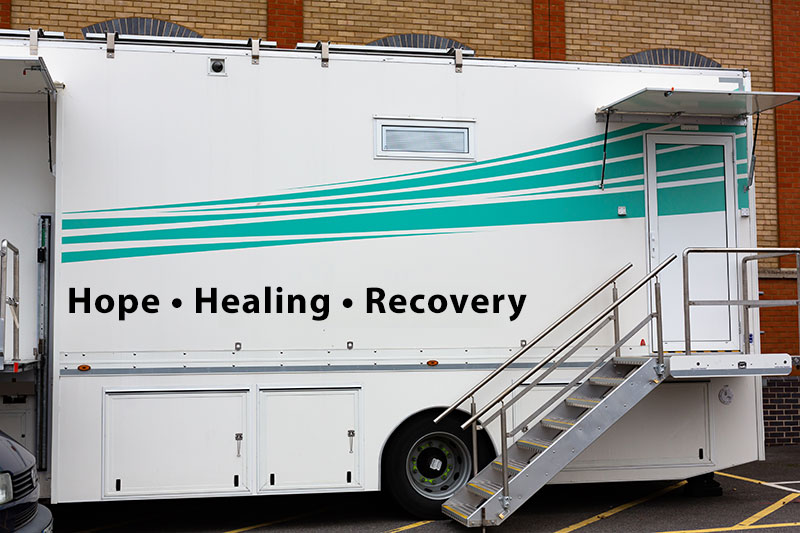New Jersey is making significant strides in expanding access and eliminating transportation barriers to medication-assisted treatment for opioid use disorders. This is being achieved through the implementation of the New Jersey Department of Human Services, Division of Mental Health and Addiction Services’ (NJDMHAS) Medication Assisted Treatment Initiative (MATI) and Travel Reimbursement and Invoicing Program (TRIP).
Expansion of Mobile Units
The state has allocated over $9 million of State Opioid Response (SOR) funds over three years to replace and add mobile units providing medications for opioid use disorders (MOUD) services in the community. These mobile units are designed to travel to communities on a regular basis to provide:
- low-threshold medication services (methadone, buprenorphine, and naltrexone),
- medical services and recovery supports to people with an opioid use disorder who encounter obstacles to receiving services at traditional “brick-and- mortar” treatment agencies.
NJ has made five awards to replace existing mobile units originally purchased in 2008/2009 and three awards for additional new mobile units.
Transportation Reimbursement Program
In November 2023, NJDMHAS initiated the Transportation Reimbursement and Invoicing Program (TRIP). TRIP is intended and designed to eliminate transportation barriers and facilitate access to substance use disorder treatment, prevention and recovery support services. TRIP funding is being provided by the Federal Substance Use Prevention, Treatment and Recovery Support (SUPTRS) COVID-19 Supplemental Block grant from the Substance Abuse and Mental Health Services Administration (SAMHSA). Through TRIPS, agencies receive reimbursement for arranging and paying for transportation for patients to attend treatment and recovery support services via rideshare, taxis, buses, trains, or other public transportation.
These initiatives represent considerable steps towards compassionate, effective support and promoting enhanced quality of life for individuals living with opioid use disorders. They are part of a broader effort to combat the opioid crisis, including evidence-based practices and best the use of increased federal and state funding.

Margaret B. Rizzo
JSAS HealthCare, Inc., Executive Director/CEO;
American Association for the Treatment of Opioid Dependence (AATOD) Board Delegate ~ NJ


